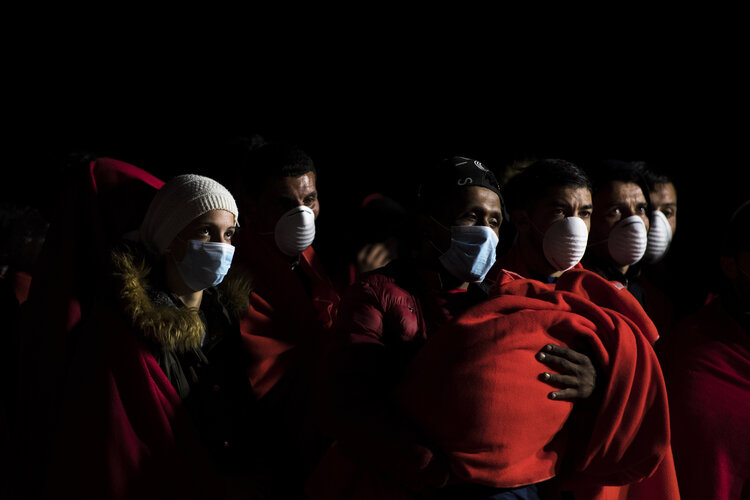The McGill Refugee Research Group held its latest event in the Contemporary Refugee Issues Fall 2020 Series, “Global Updates: Refugee Protection and Empowerment webinar,” on Nov. 26. The webinar explored both the individual and organizational responses to refugee crises around the world, which the COVID-19 pandemic has worsened. Three McGill Ph.D. students presented their research on the protection and empowerment of worldwide refugees.
Nick Parent, second year McGill PhD candidate in the department of Geography, researches the displacement, encampment, and repatriation of Congolese refugees. Parent believes that Congolese refugees will be essential in redefining the local political landscape in the Congo and negotiating the terms of their return.
“My project is very much about trying to bridge people to systems,” Parent said. “We’re trying to find ways to create narratives based on this information [regarding the personal experiences of refugees] and [create] a deliverable output that can be forwarded to the refugee management system with consultation with refugees. [We’re] really trying to make this as much of a bottom-up process as possible, so that whatever management system they do is informed by the refugees themselves.”
Next to speak was fourth-year PhD candidate in anthropology at McGill, Cristina Yépez, who presented findings from her anthropological research, which focusses on Venezuelan migrant and refugee communities in Ecuador. Her recent work has examined how the COVID-19 pandemic has impacted 2SLGBTQIA+ Venezuelan migrants. Yépez explained that the impacts of the COVID-19 pandemic, such as widespread unemployment and limited testing capabilities, have exacerbated the long-standing discrimination of members of the migrant and refugee 2SLGBTQIA+communities, due to the now decreased access to health care, education, and sources of income. Yépez illustrated how 2SLGBTQIA+ migrants and refugees have often taken up informal-autonomous work, such as street vending and sex work, as a last resort given the high unemployment rates.
“Sex for subsistence is highly violent and risky, even more [so] during the pandemic,” Yépez said. “[It] is very often used in exchange for housing because of widespread situations of eviction and expulsion.”
Merve Erdilmen, a PhD candidate in political science at McGill, studies the global governance of international organizations and the effects that refugee-related policies have on female refugees. Through her research, Erdilmen investigated female Syrian refugees in Turkey and analyzed the impacts of global gender mainstreaming policies. Erdilmen looked at how these policies have limited women’s access to health and education.
“One of the challenges women in Turkey face are barriers to accessing education and livelihood opportunities,” Erdilmen said. “Only 15 per cent of women refugees work in income-generating jobs.”
Erdilmen believes, however, that refugee advocacy groups often have different agendas and a limited understanding of what needs to be done to empower and protect women refugees. Erdilmen illustrated this concern by explaining that women refugees are rarely consulted when governments decide to change policies that may affect them.
“This rather traditional understanding of refugee women empowerment often misses the ways in which power politics constrain access for women,” Erdilmen said. “Overall, my respondents state that strategies to foster empowerment must be locally durable and must consider both economy and local approaches that empower [women].”
Ian Van Haren is a fourth-year PhD candidate in sociology with a specialization in population and health dynamics and is the graduate student coordinator for the McGill Research Group and was the host of the webinar. He concluded the event by discussing how best to approach the global refugee crisis.
“It’s really [important] to think about whose voices are being heard and understood in shaping the prospects that refugees in different contexts have,” Van Haren said. “It’s a really interesting process […]. Our examples show us how these three migrant crises have played out and what can be studied in these different locations.”








